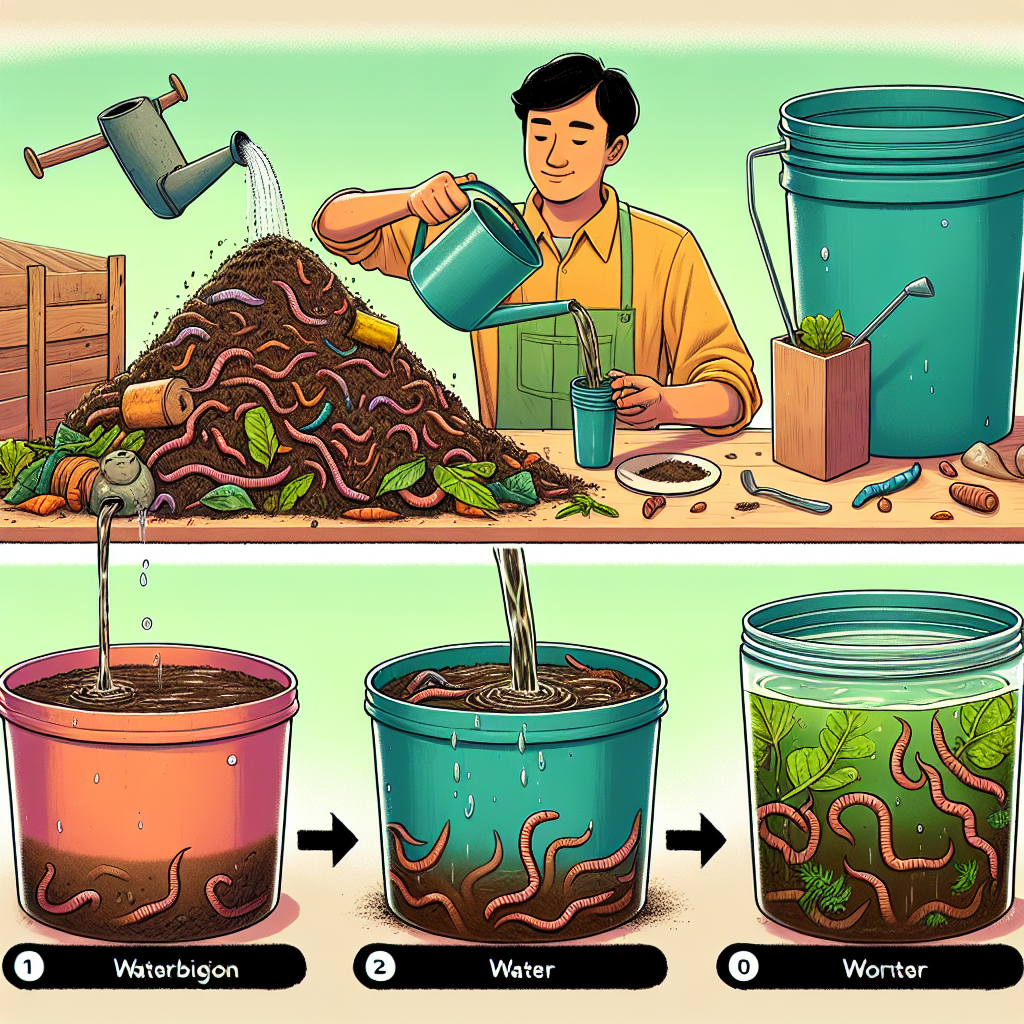
How to make worm tea
Introduction to Worm Tea
If you've ever wondered how to enhance your garden's vitality and health, you might have come across the term "worm tea." This organic fertilizer is packed with nutrients that can dramatically improve plant growth and soil health. In this guide, we will delve into the benefits of worm tea, how to make it, and tips for using it in your garden.
What is Worm Tea?
Worm tea is a nutrient-rich liquid produced by steeping worm castings in water. It's an excellent organic fertilizer that provides plants with essential nutrients while also promoting beneficial microorganisms in the soil. The primary ingredient, worm castings, are the digested organic materials that earthworms excrete, making them one of the best sources of organic matter.
The Benefits of Using Worm Tea
Worm tea offers several benefits for both gardens and houseplants. Here are some key advantages:
- Improved Plant Growth: The nutrients in worm tea enhance root development and overall plant vigor.
- Soil Health: It increases microbial activity in the soil, promoting a healthy ecosystem.
- Pest Resistance: Regular application can bolster plants' defenses against pests and diseases.
- pH Balance: Helps maintain optimal pH levels in the soil, contributing to better nutrient absorption.
- Eco-Friendly: Being entirely organic, it is a sustainable choice for gardens.
How to Make Worm Tea
The process of creating worm tea is simple and involves a few key steps. Here, we will outline the overall method, equipment needed, and some tips to help you succeed.
What You Need
Gather the following materials to get started:
- Worm Castings: Approximately 1-2 cups of high-quality worm castings.
- Water: Approximately 5 gallons, preferably rainwater or dechlorinated water.
- Container: A 5-gallon bucket or any similar container for brewing.
- Aeration Device: An aquarium air pump with air stones, though optional, can improve aeration and microbial activity.
Step-by-Step Guide to Brewing Worm Tea
- Prepare Your Container: Start by cleaning your bucket or container to ensure that there are no harmful residues left behind.
- Mixing the Ingredients: Fill the container with water, leaving some space at the top, and add the worm castings. If you have an aeration device, place it in the container at this stage.
- Aeration Process: If using an air pump, turn it on. Allow the mixture to brew for 24-48 hours. The aeration helps promote the growth of beneficial microbes.
- Strain the Mixture: After the brewing period, strain the liquid through a fine mesh or cheesecloth to separate the worm castings from the tea.
- Store or Use: Your worm tea is now ready to use! You can use it immediately or store it in a cool, dark place for up to a week.
Using Worm Tea in Your Garden
Once you've successfully brewed your worm tea, the next step is applying it effectively. Here are some tips on how best to utilize this organic fertilizer:
Application Techniques
- Drenching: Pour the worm tea directly onto the soil around your plants, soaking the root zone.
- Foliar Spray: Dilute the worm tea with water (1:10 ratio) and spray it onto the leaves to provide nutrients directly.
- Compost Tea Brew: Use worm tea as an ingredient in a larger compost tea batch for a more potent mixture.
Frequency of Application
For optimal results, apply worm tea to your garden every 2-4 weeks during the growing season. This frequency can vary depending on your plants' needs and soil conditions.
Common Questions About Worm Tea
How Long Can You Store Worm Tea?
Worm tea can be stored for up to one week. Keep it in a cool, dark place to maintain its potency.
Can You Over-Fertilize with Worm Tea?
While worm tea is gentle and less likely to cause over-fertilization compared to synthetic fertilizers, it’s still important to monitor your plants. If you notice leaf burn or wilting, reduce the frequency of application.
Is Worm Tea Safe for Indoor Plants?
Yes, worm tea is safe for indoor plants! It’s a fantastic way to provide extra nutrients without the risks of chemical fertilizers.
Conclusion
Knowing how to make worm tea is a valuable skill for any gardener looking to enhance plant health and promote soil vitality. Not only is it easy to make, but it's also a sustainable and environmentally friendly option. With its myriad benefits, worm tea can become an essential part of your gardening routine, nourishing your plants and enriching your soil.
Additional Tips for Success
As you incorporate worm tea into your gardening practices, consider the following tips:
- Use Quality Worm Castings: The quality of your worm castings directly impacts the effectiveness of your worm tea. Source them from reputable suppliers or produce them yourself.
- Incorporate Other Organic Inputs: Adding other organic materials to your garden can improve overall soil health and complement the effects of worm tea.
- Observe Plant Response: Keep an eye on your plants’ reactions to the worm tea, adjusting application rates as necessary for optimal results.
By mastering the art of making and using worm tea, you'll be well on your way to achieving a thriving and healthy garden ecosystem that benefits both your plants and the environment.
By Guest, Published on October 24th, 2024